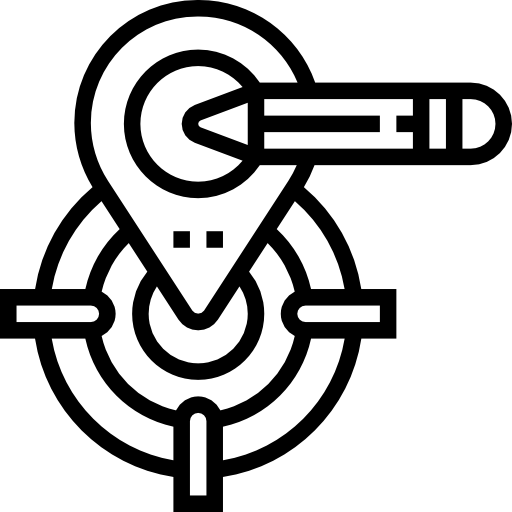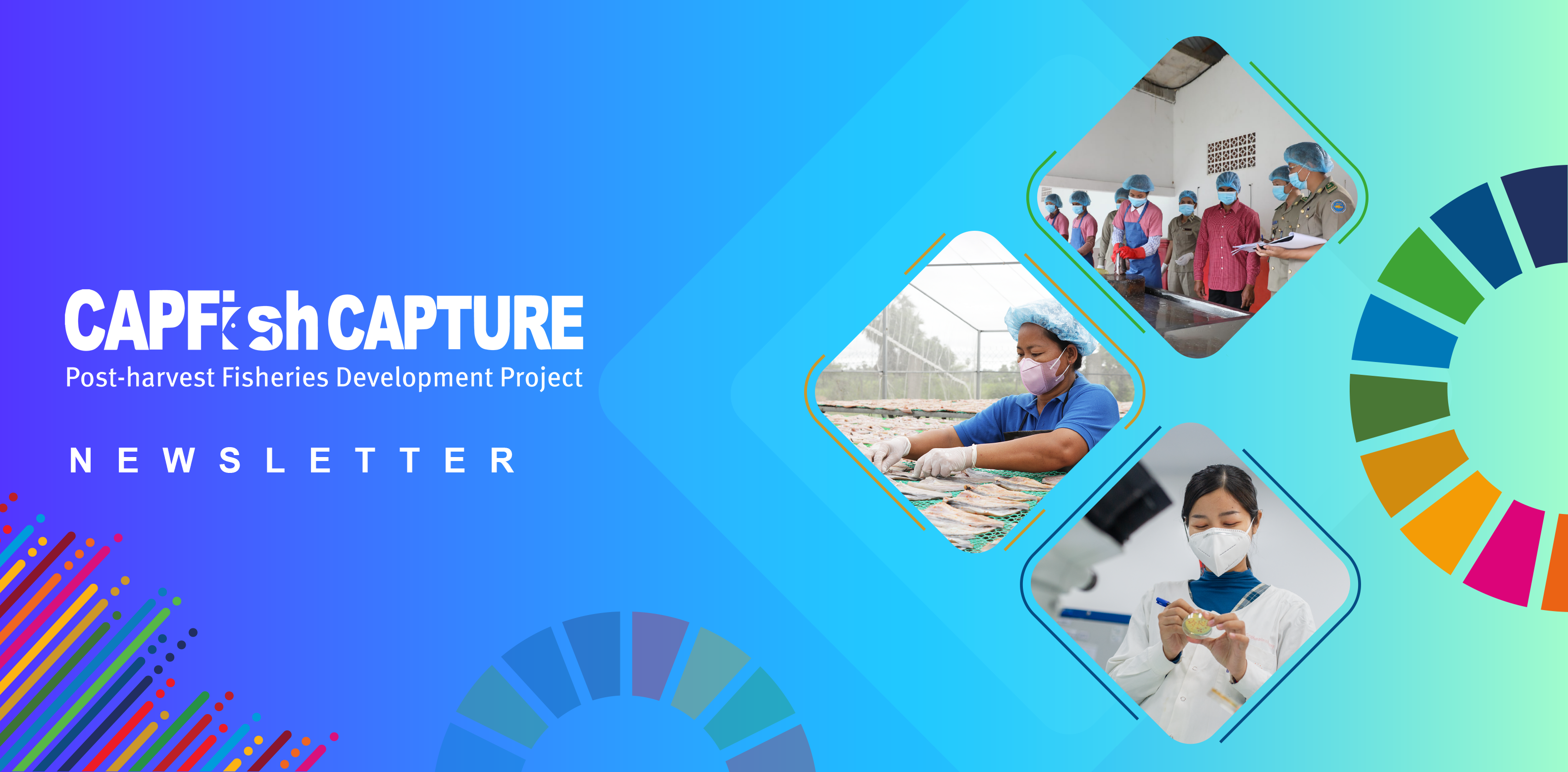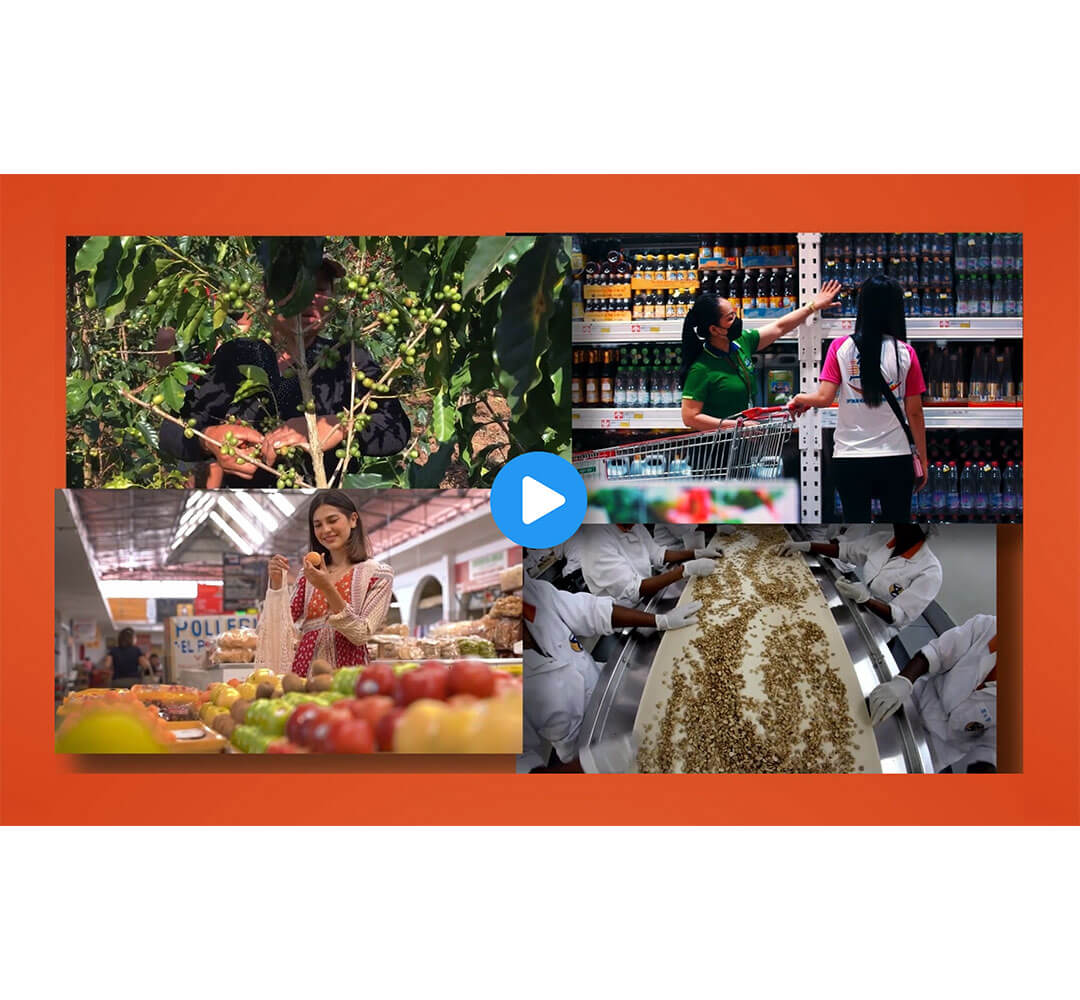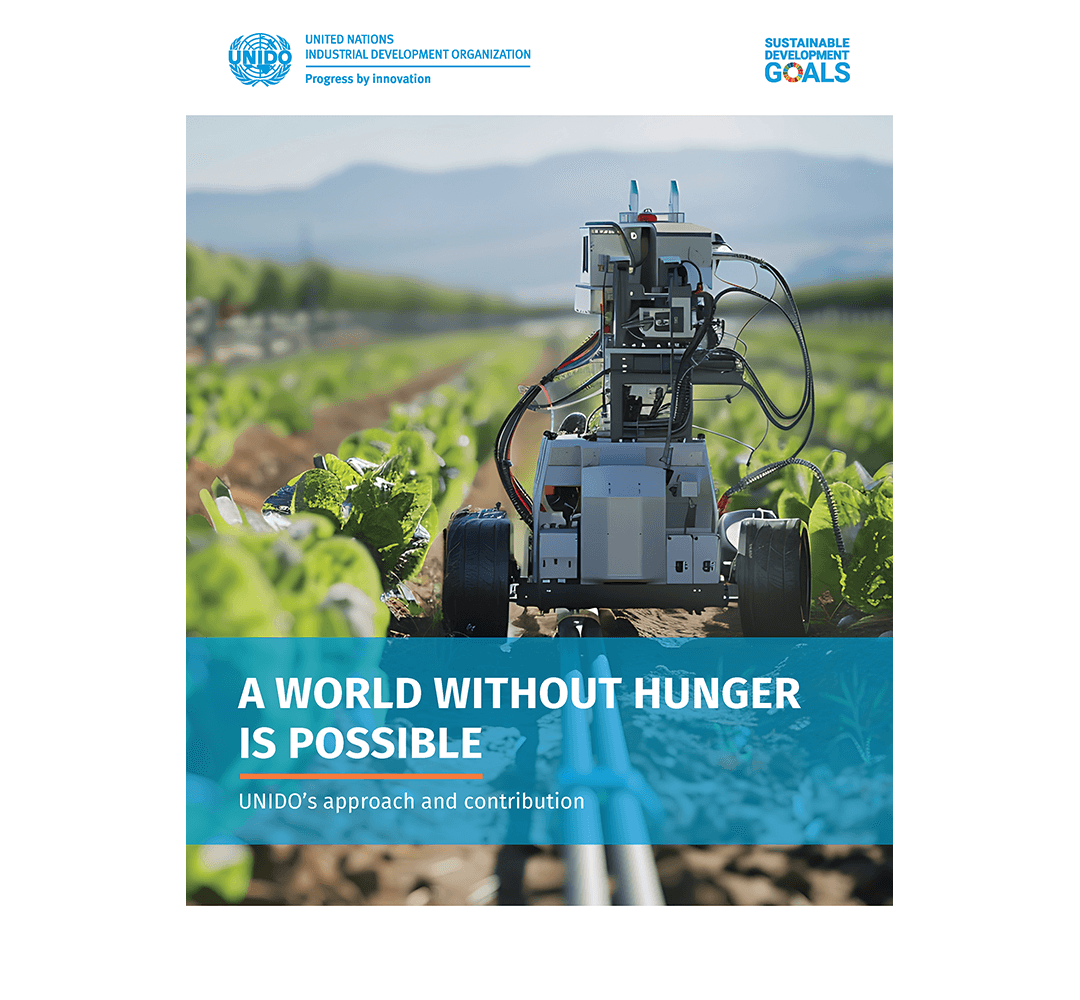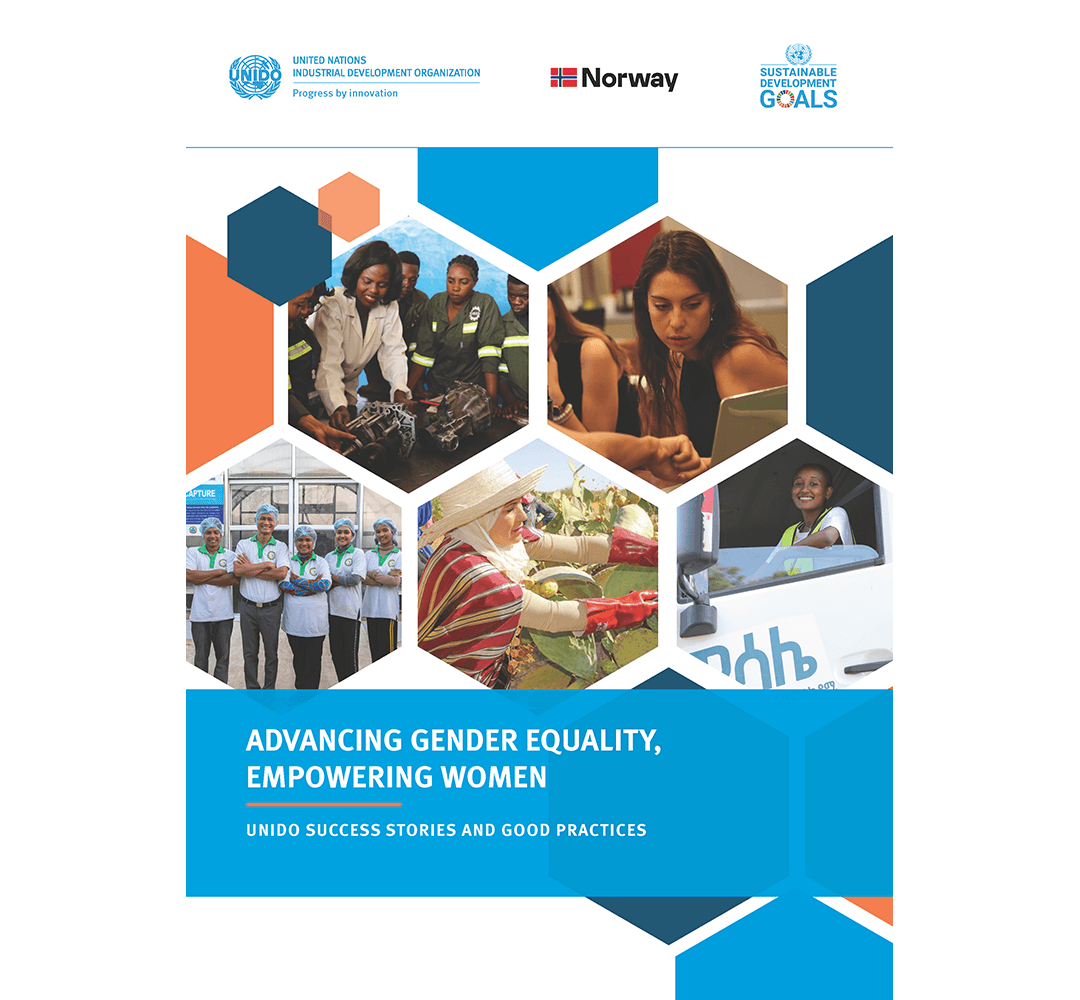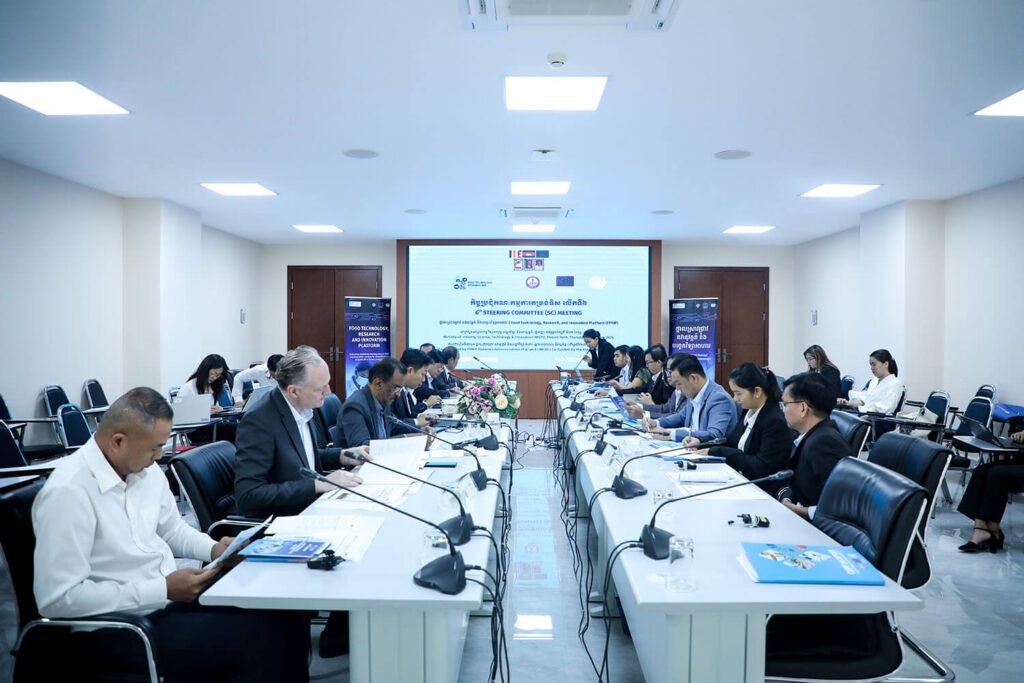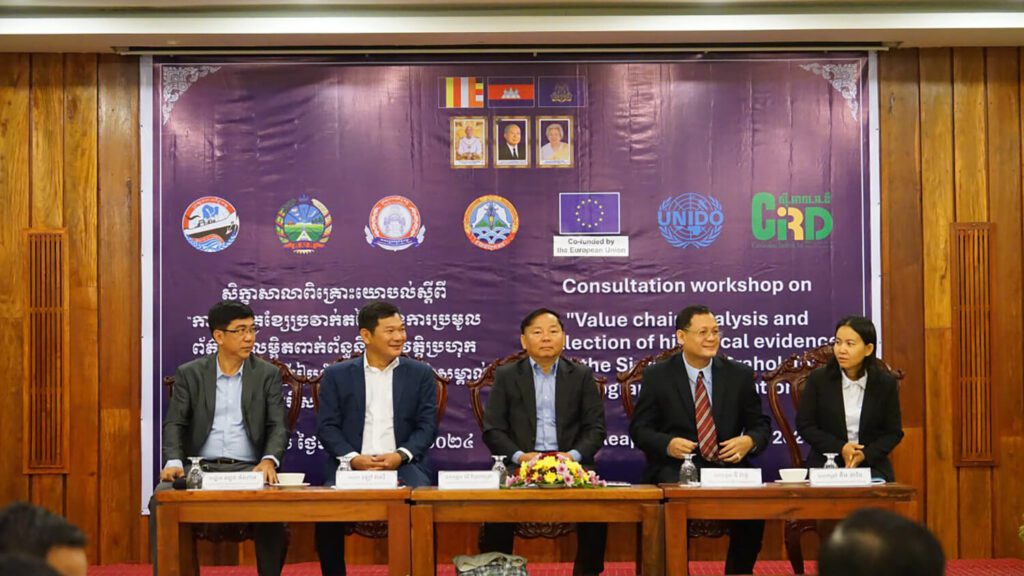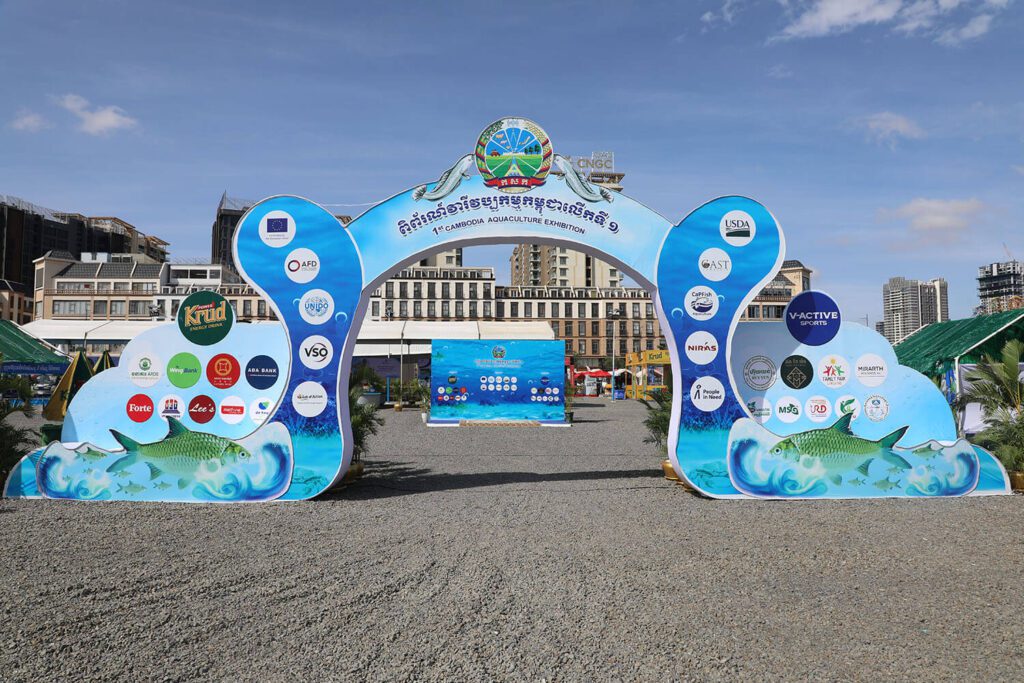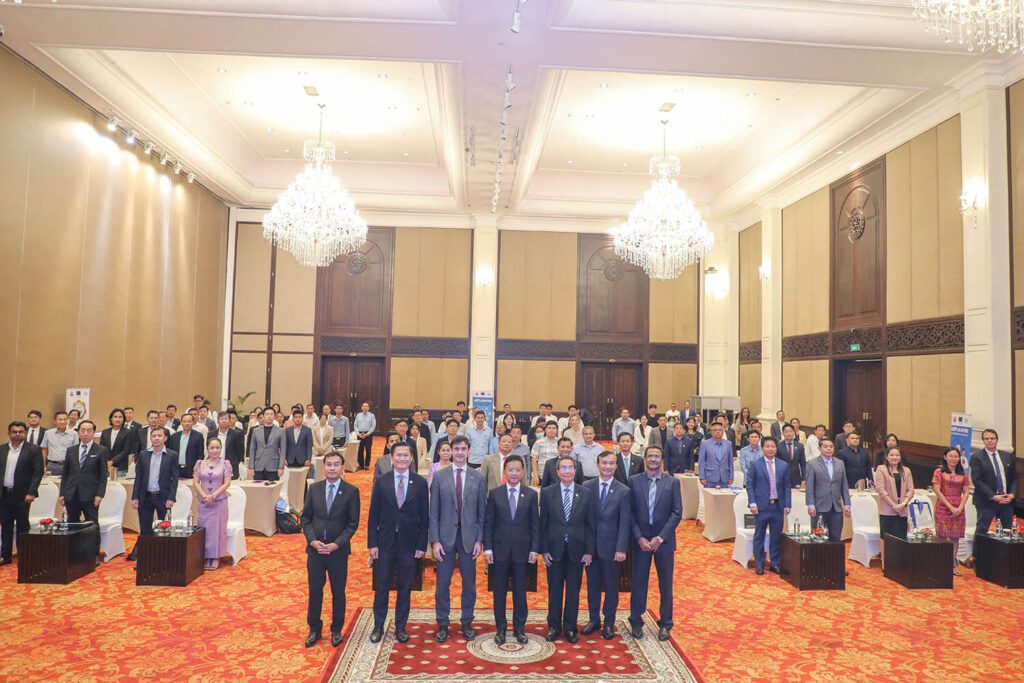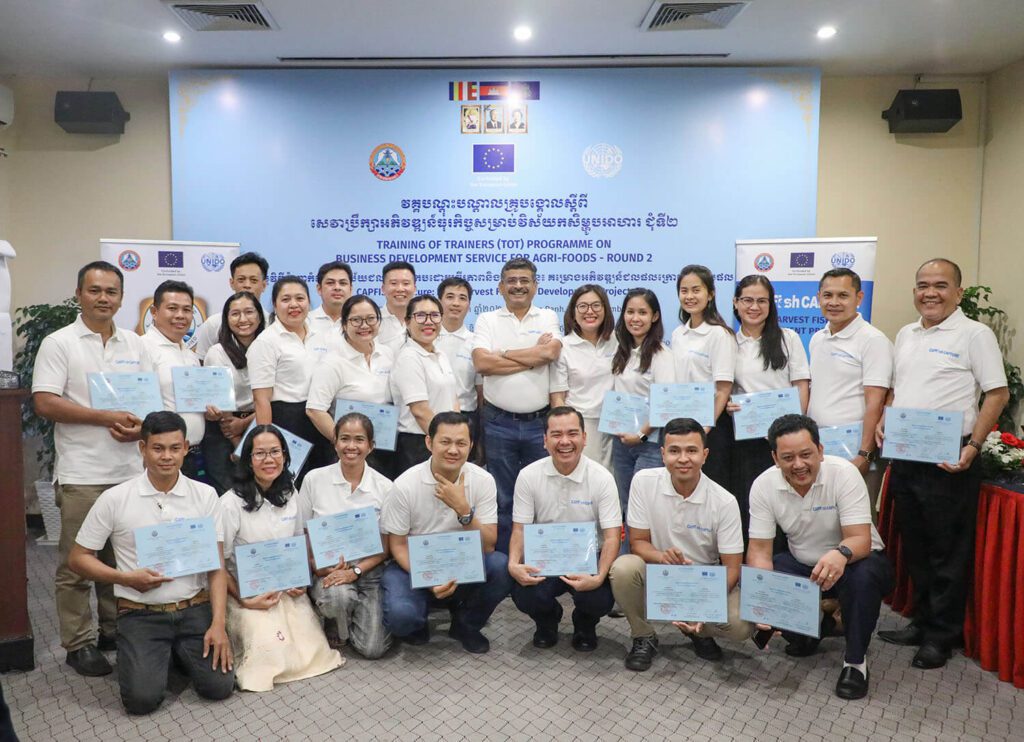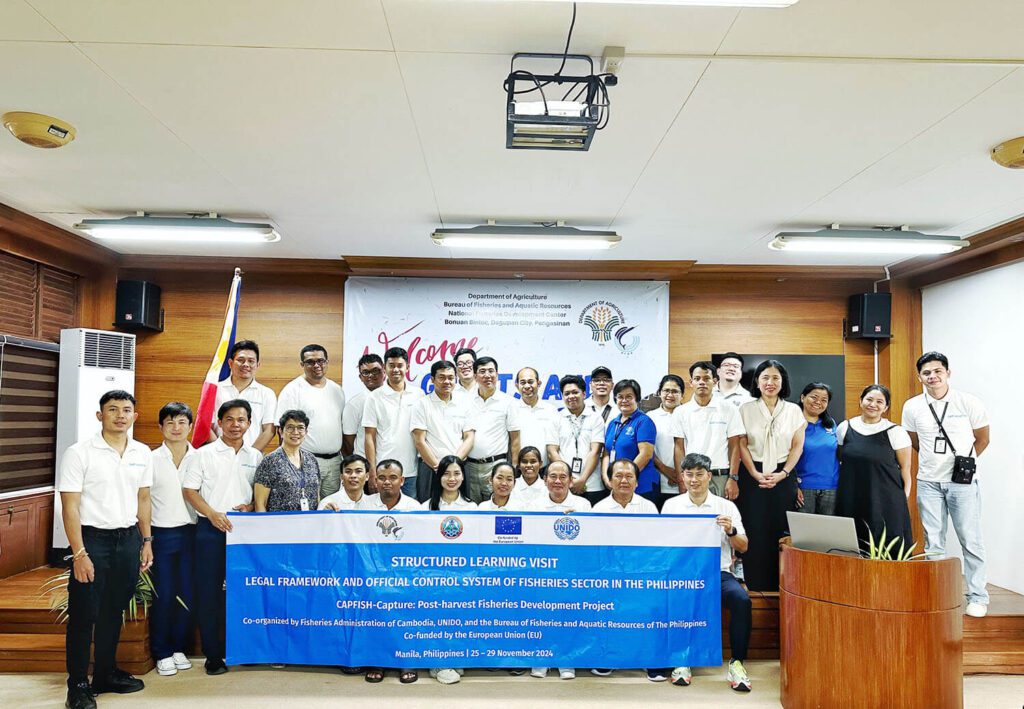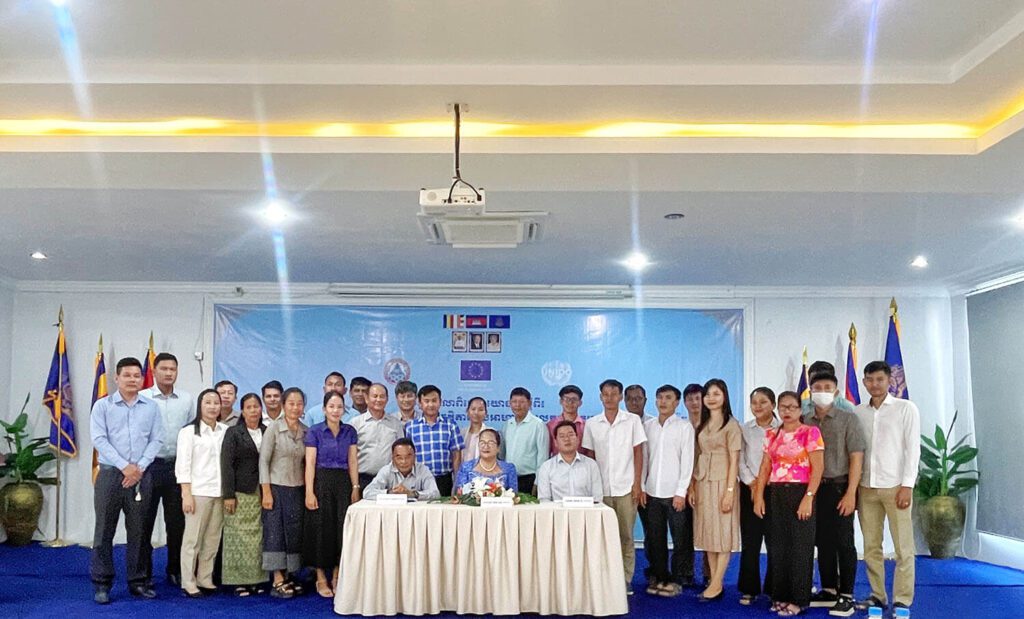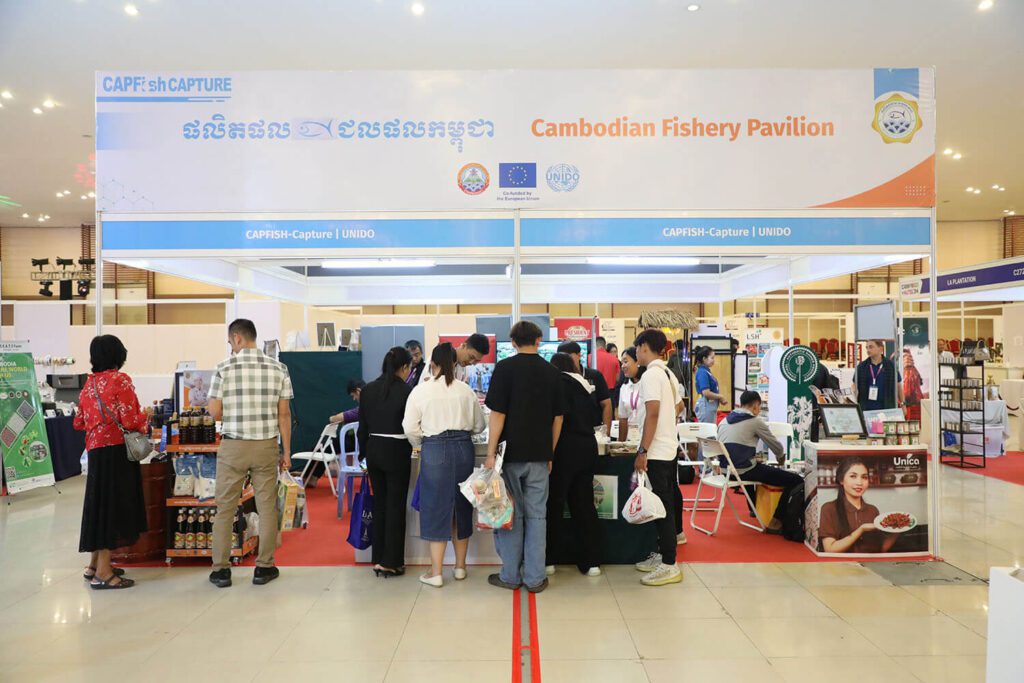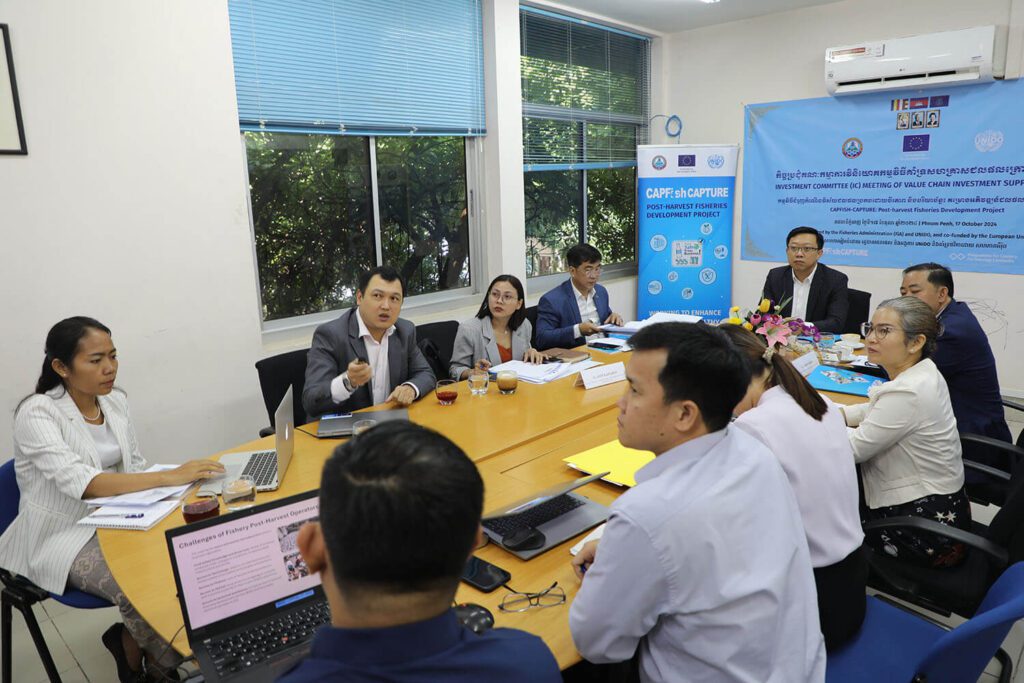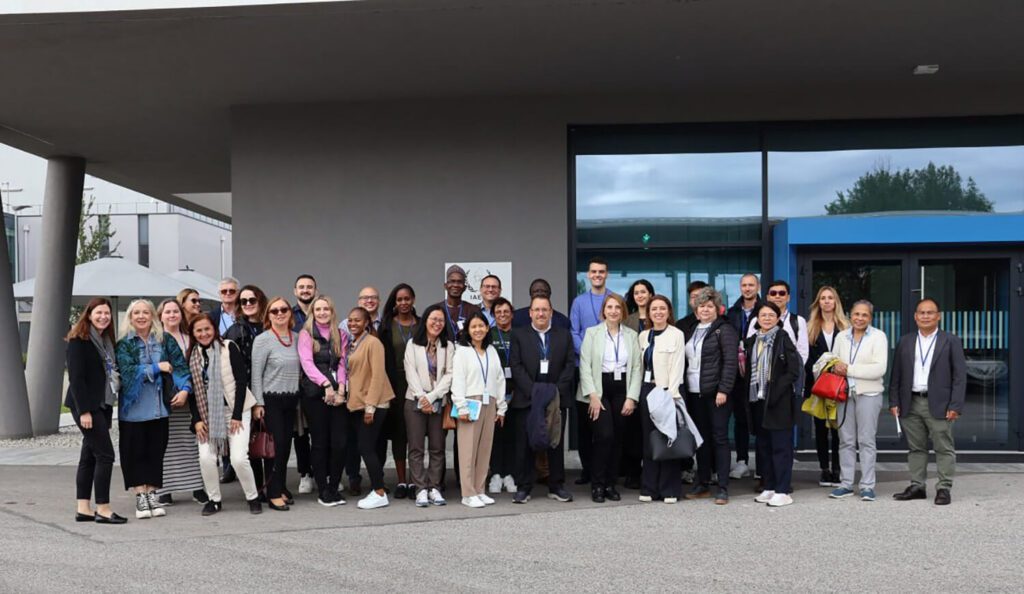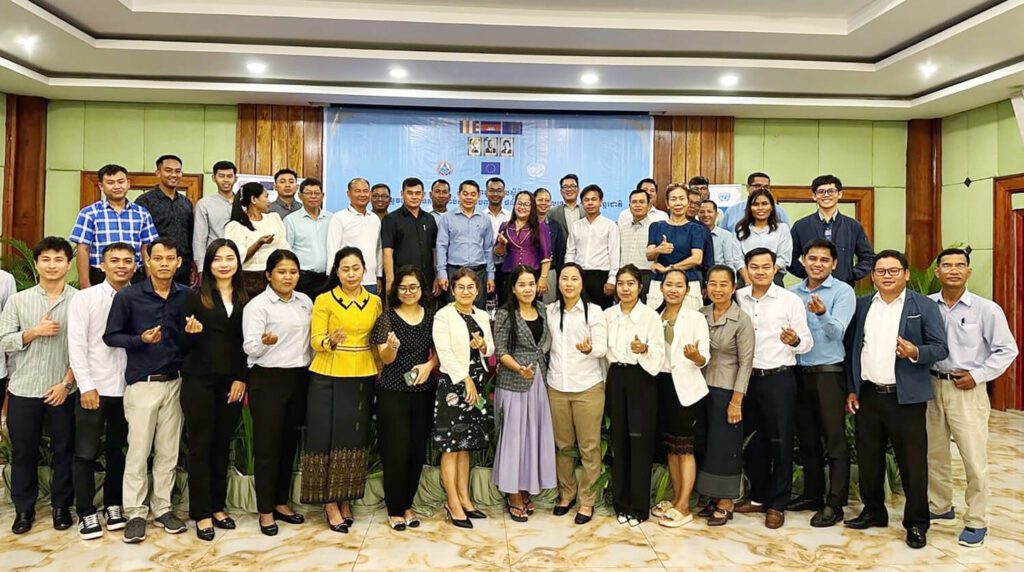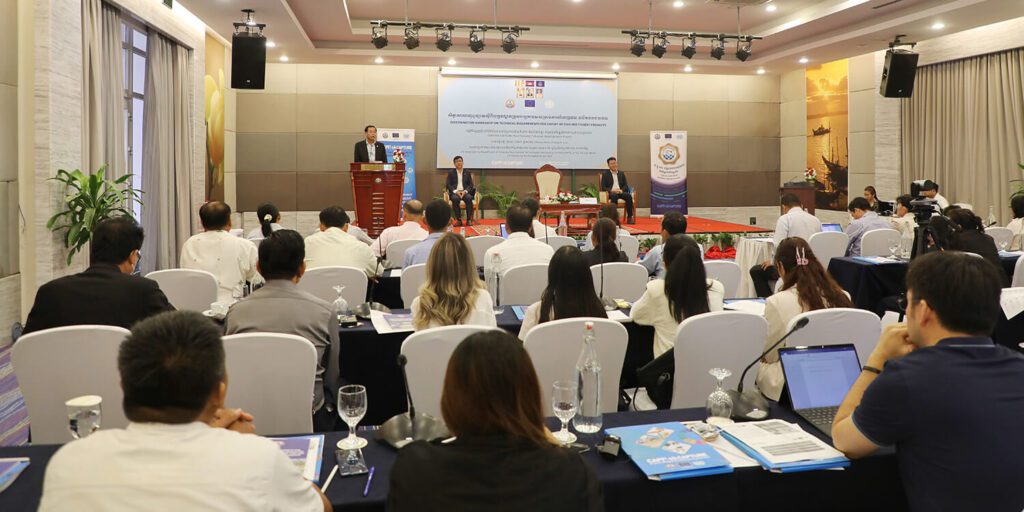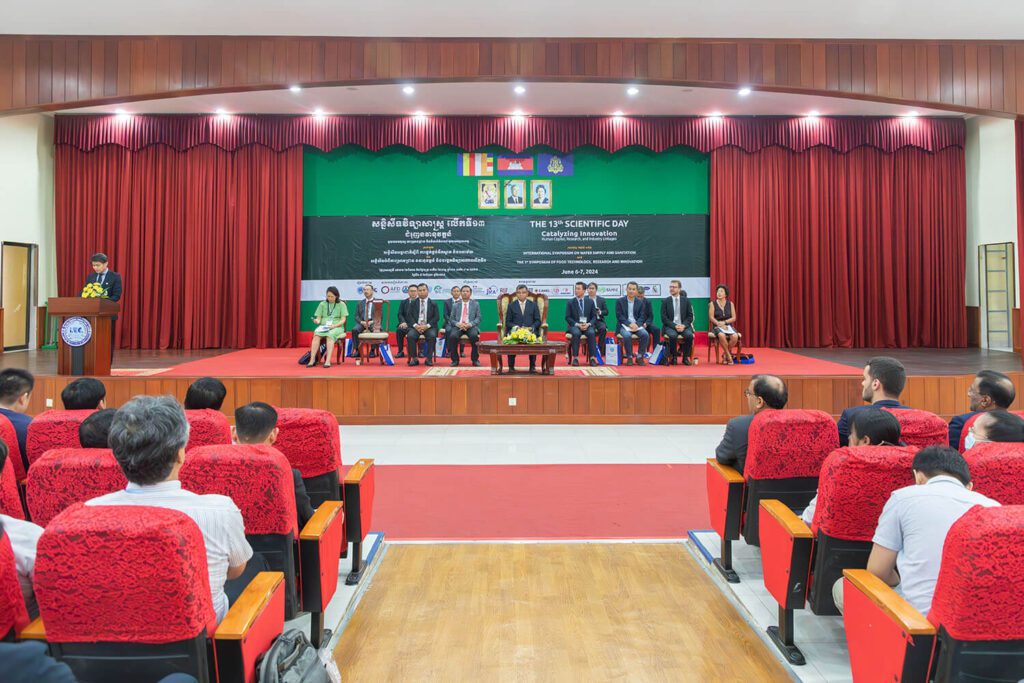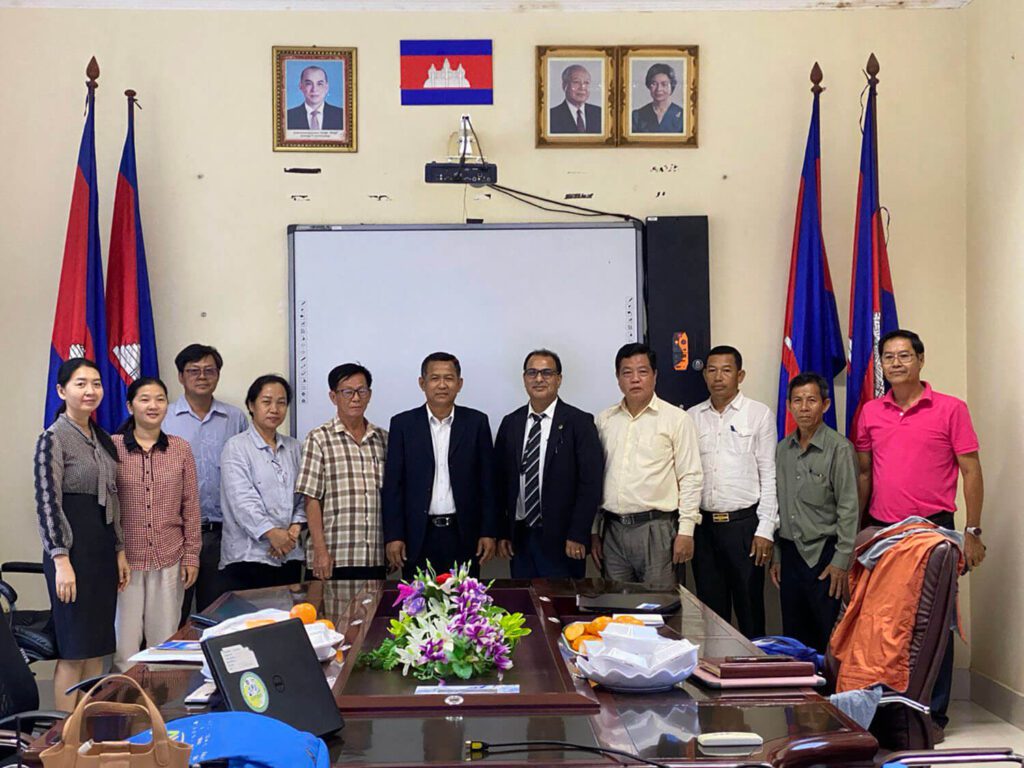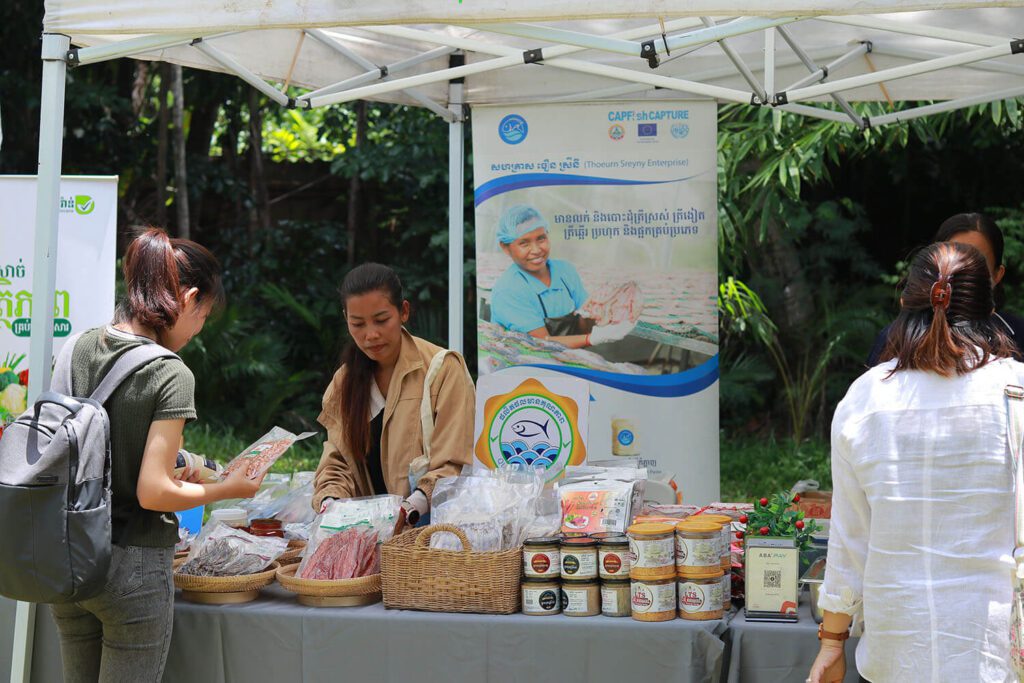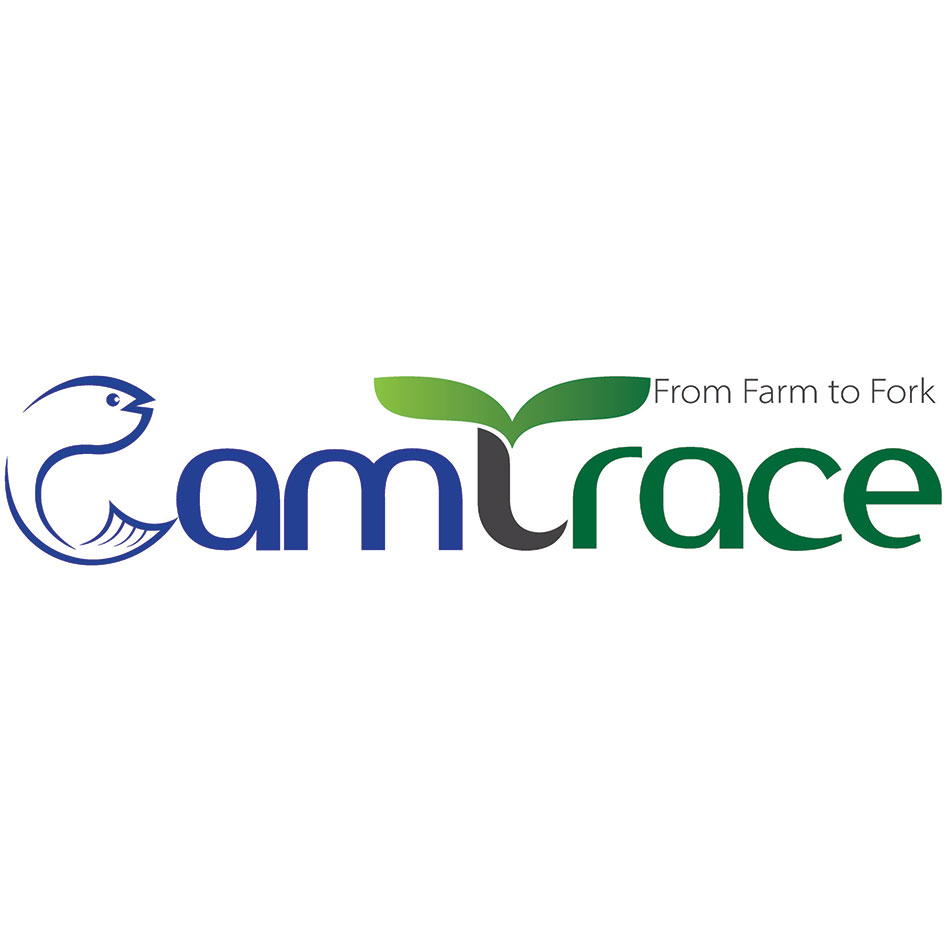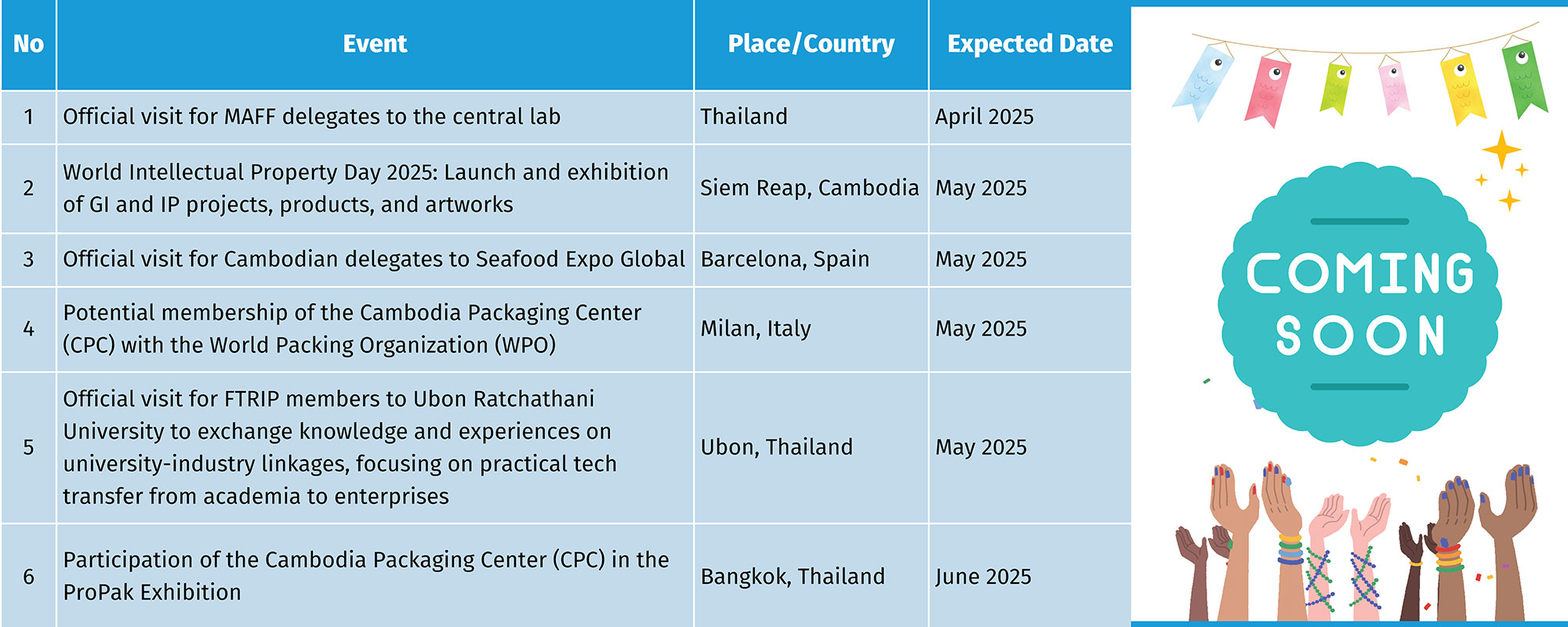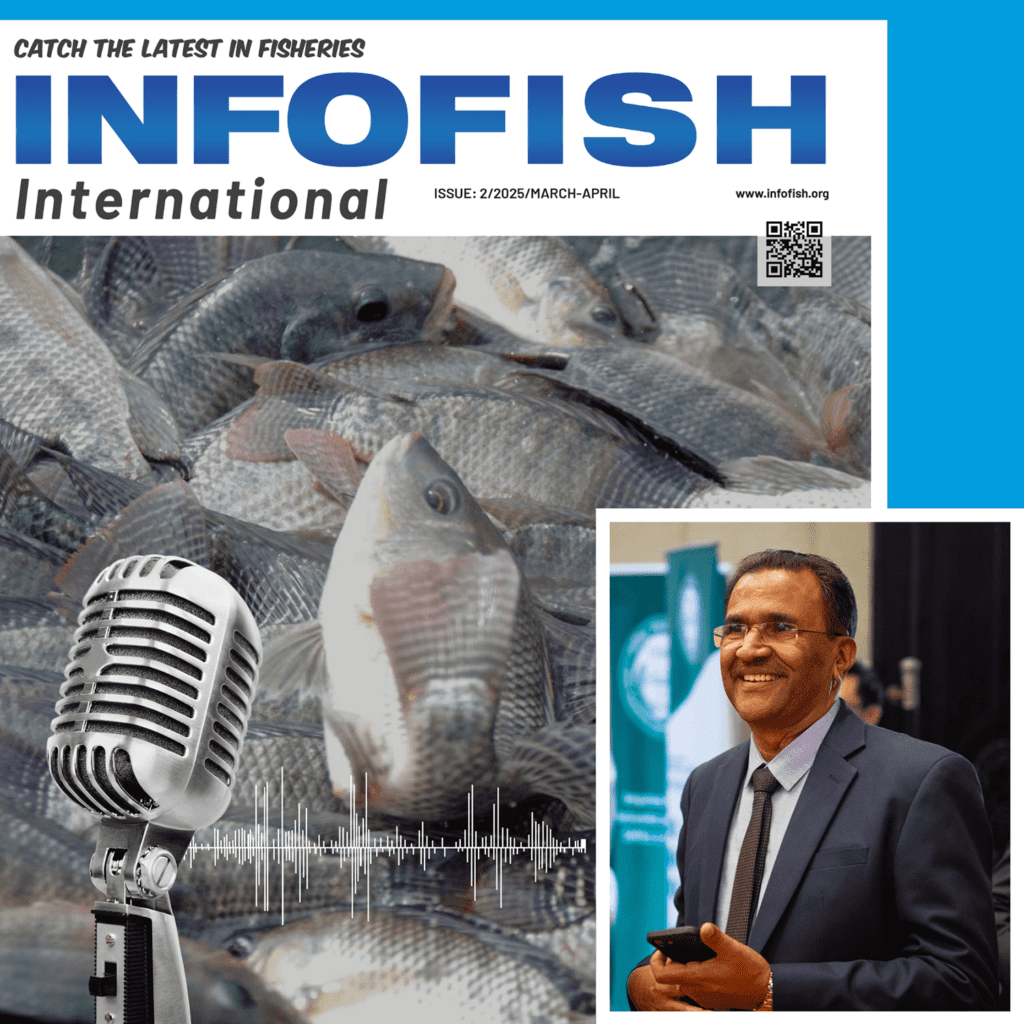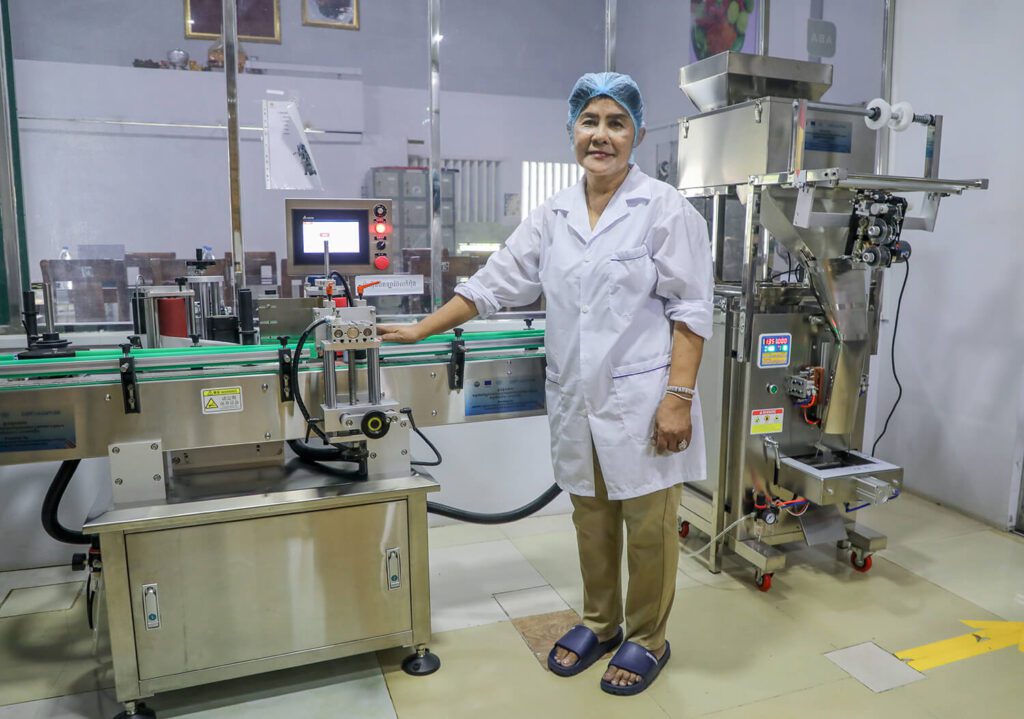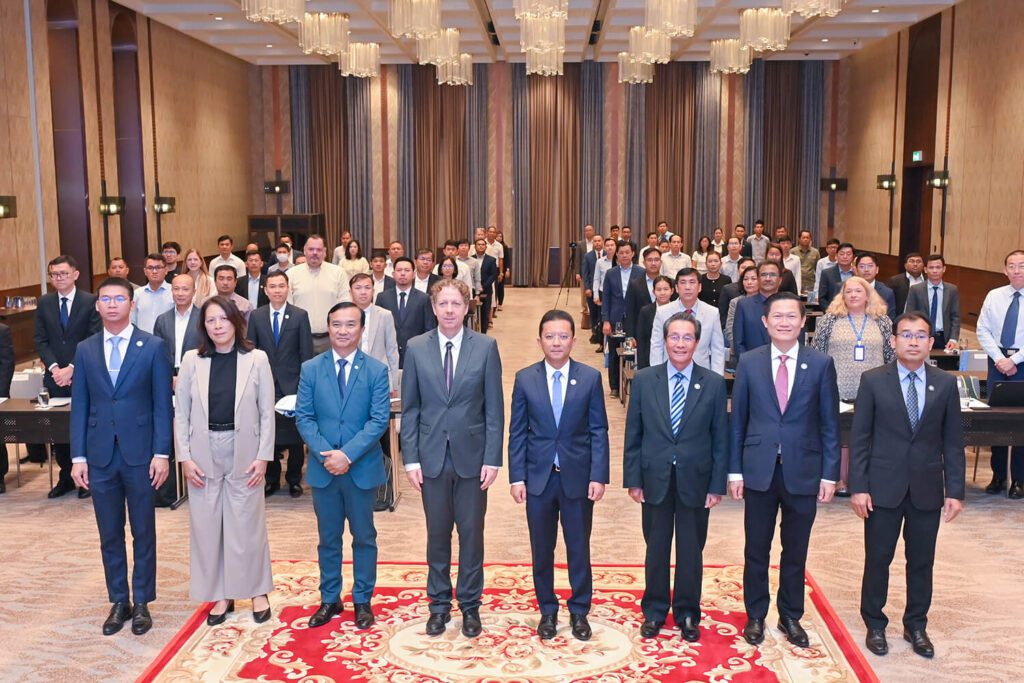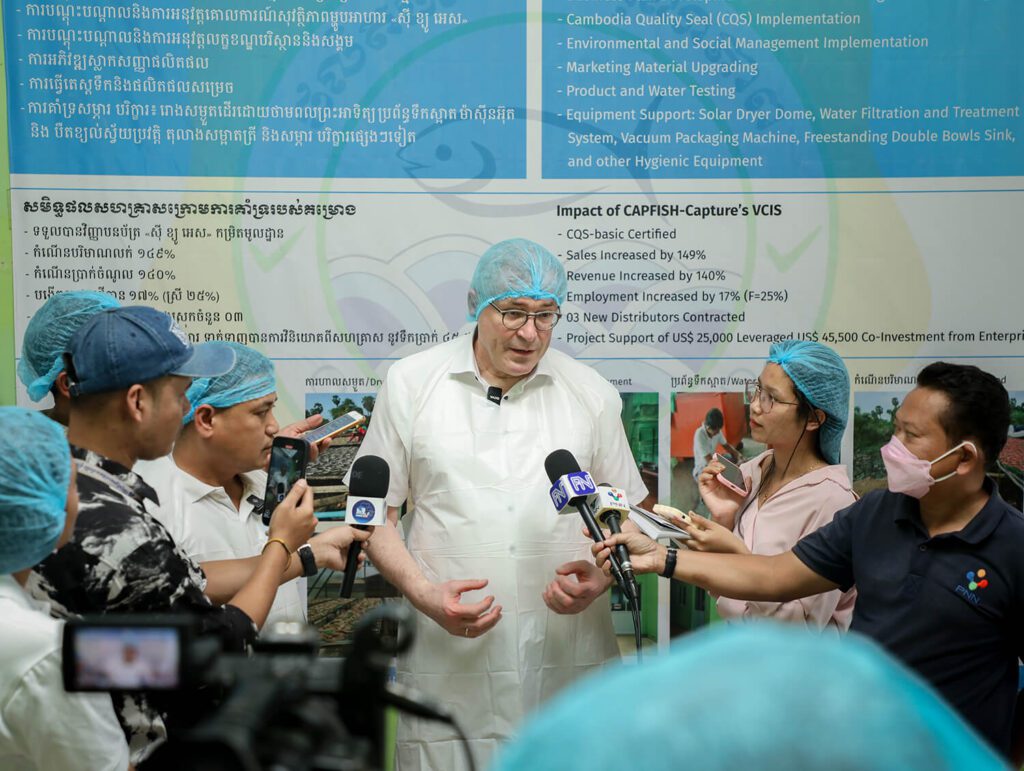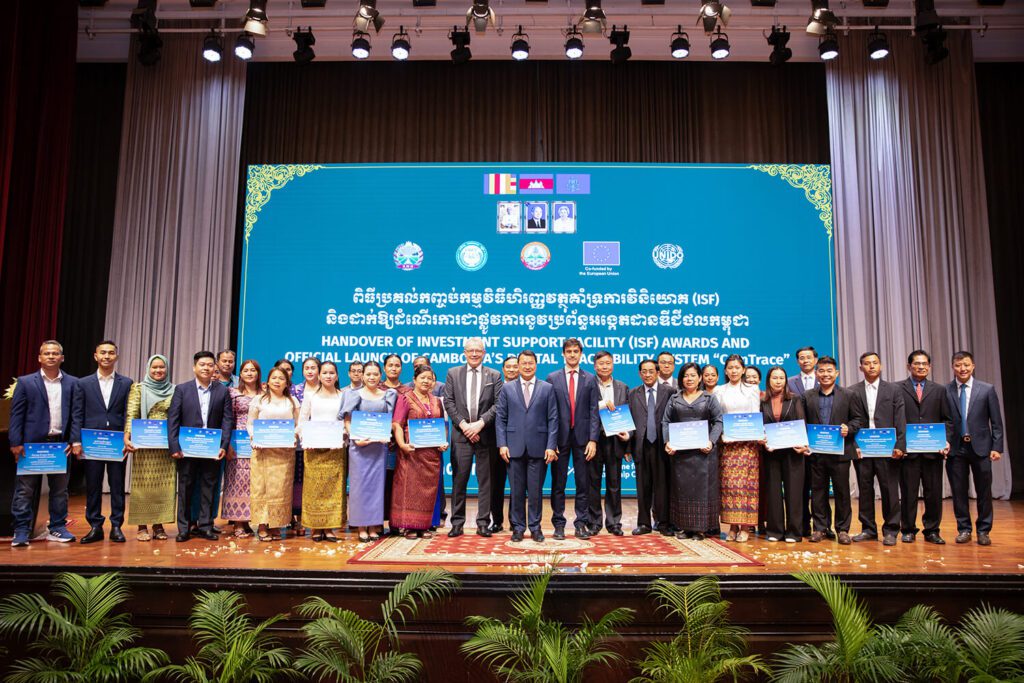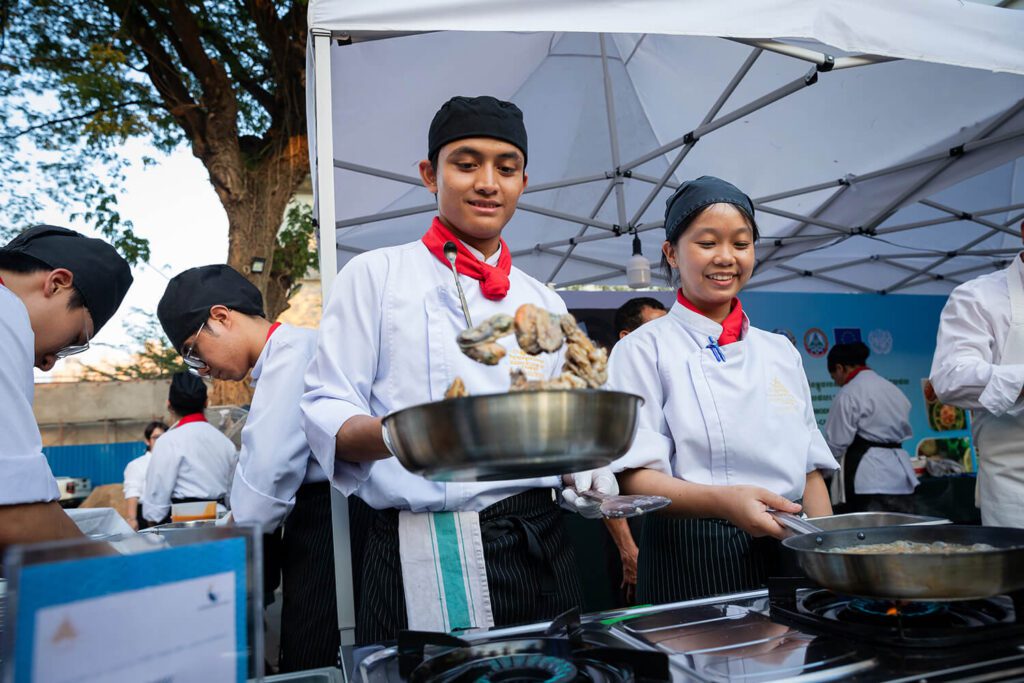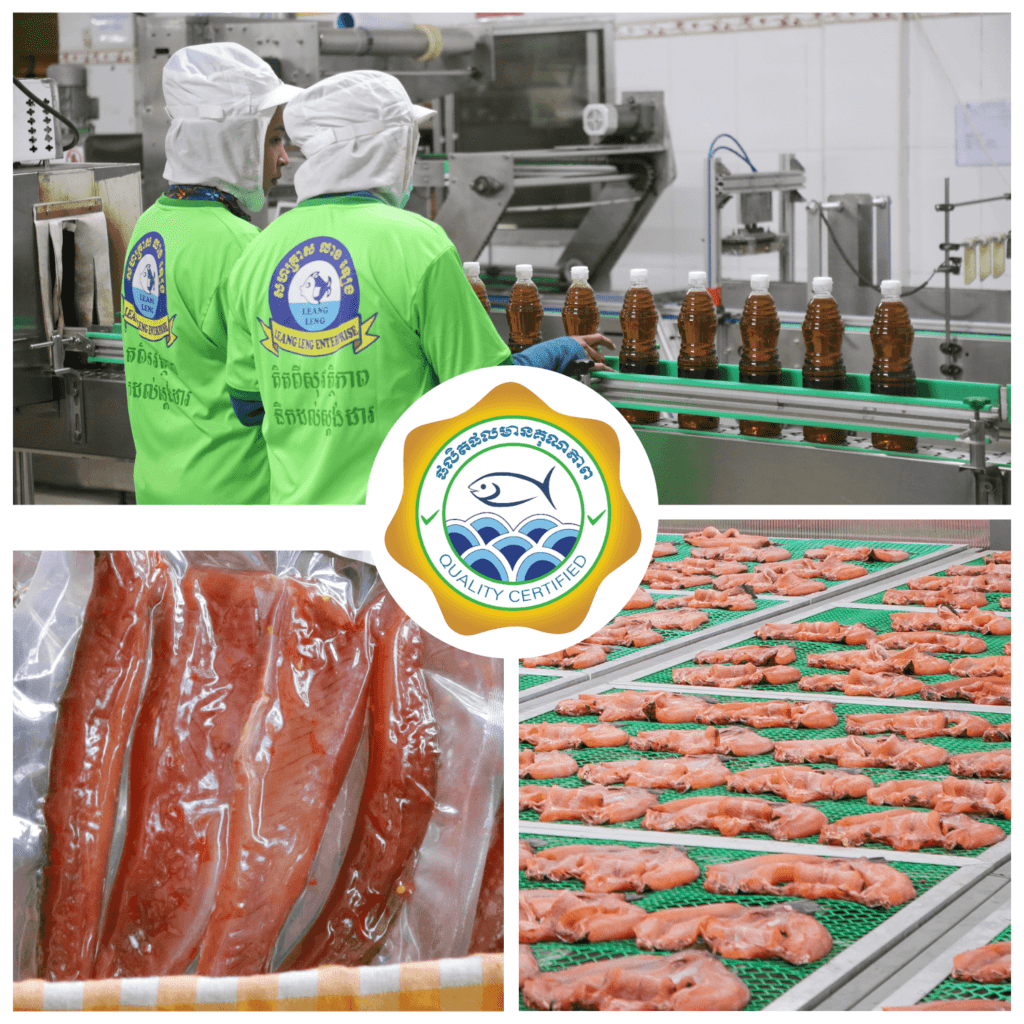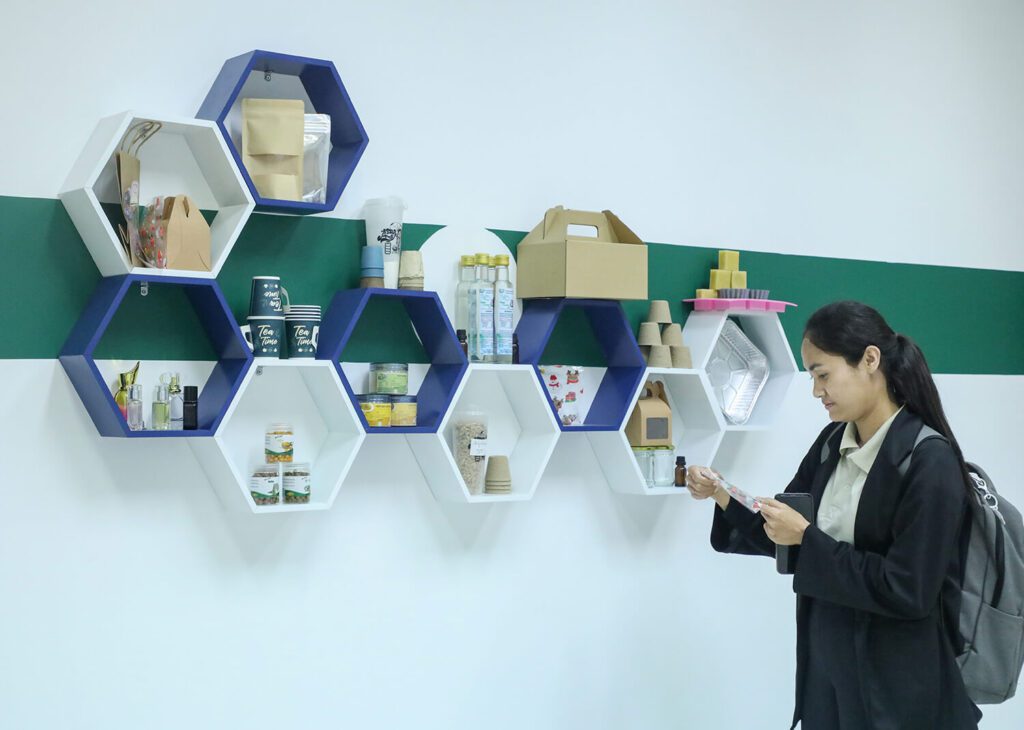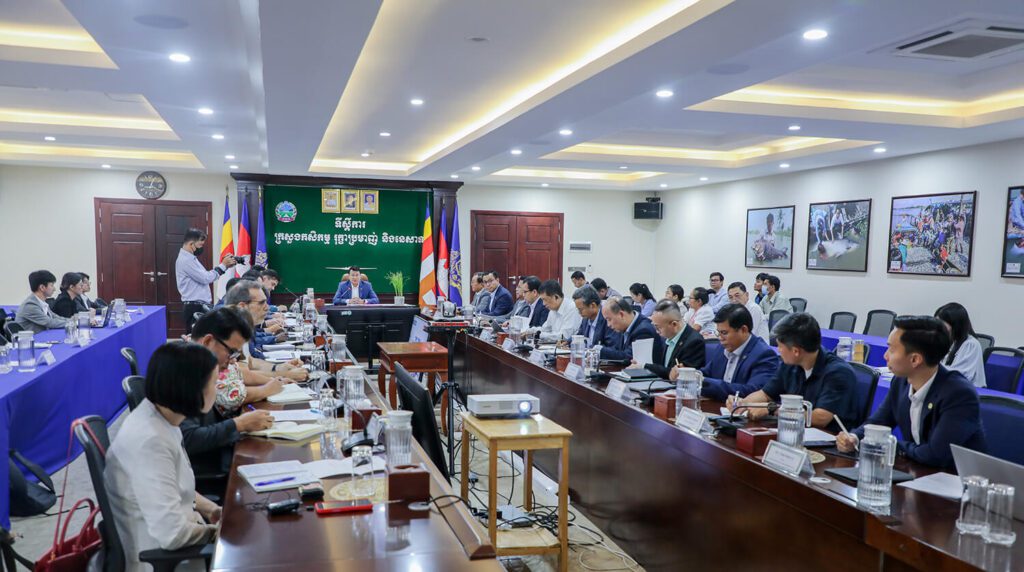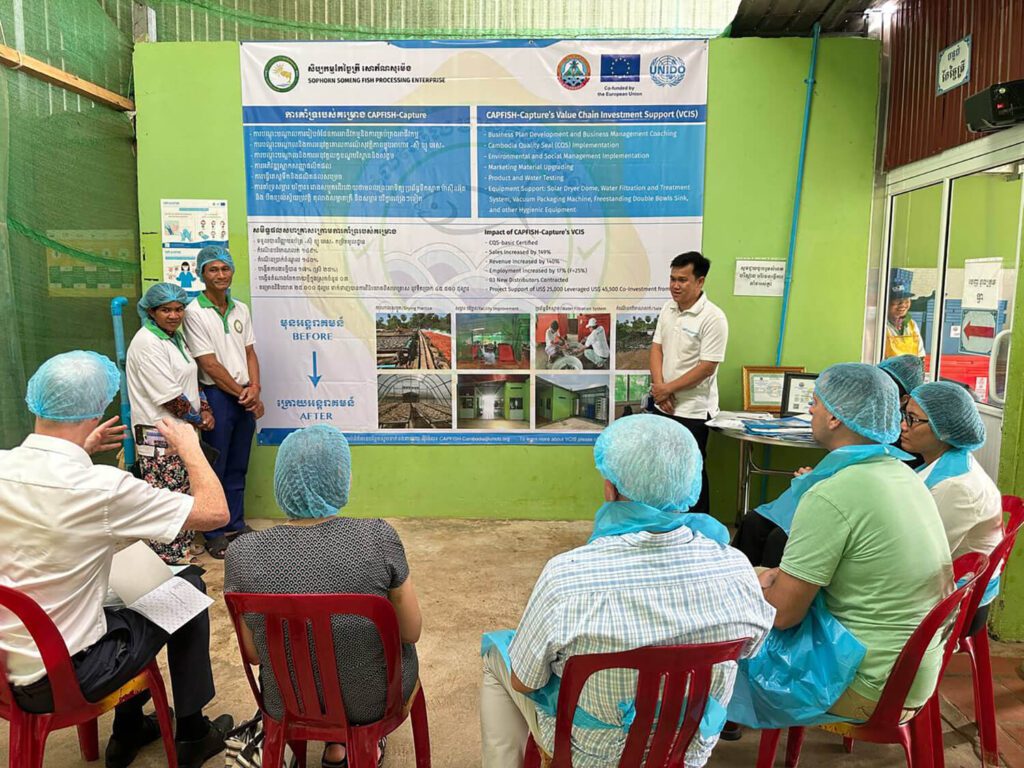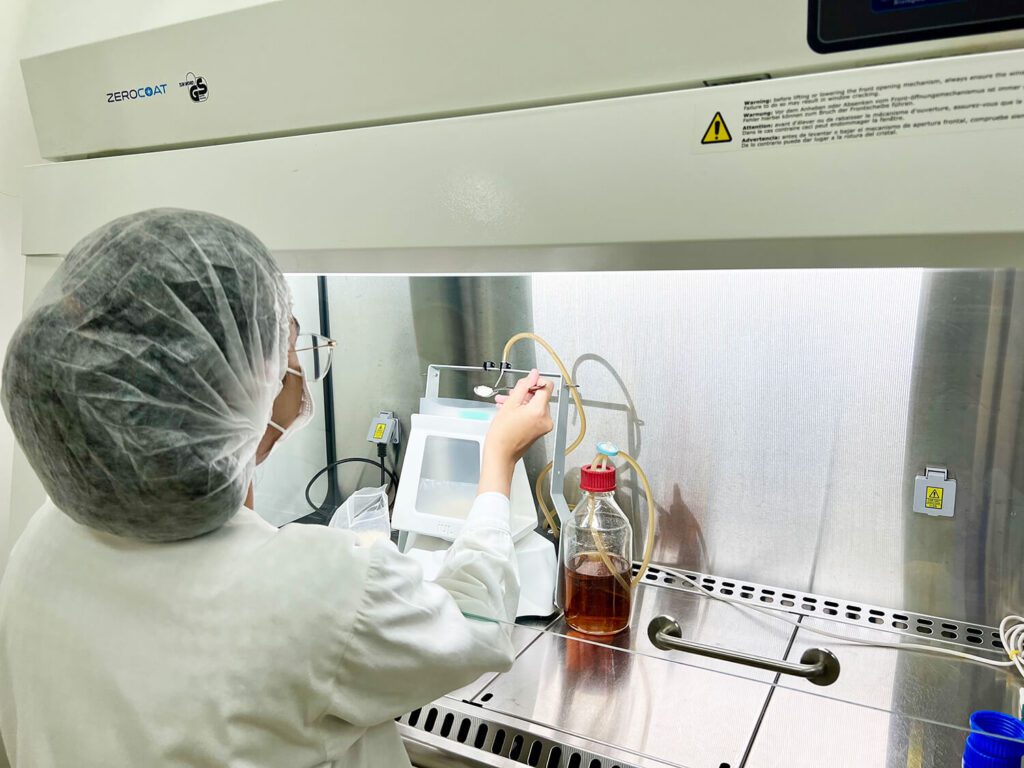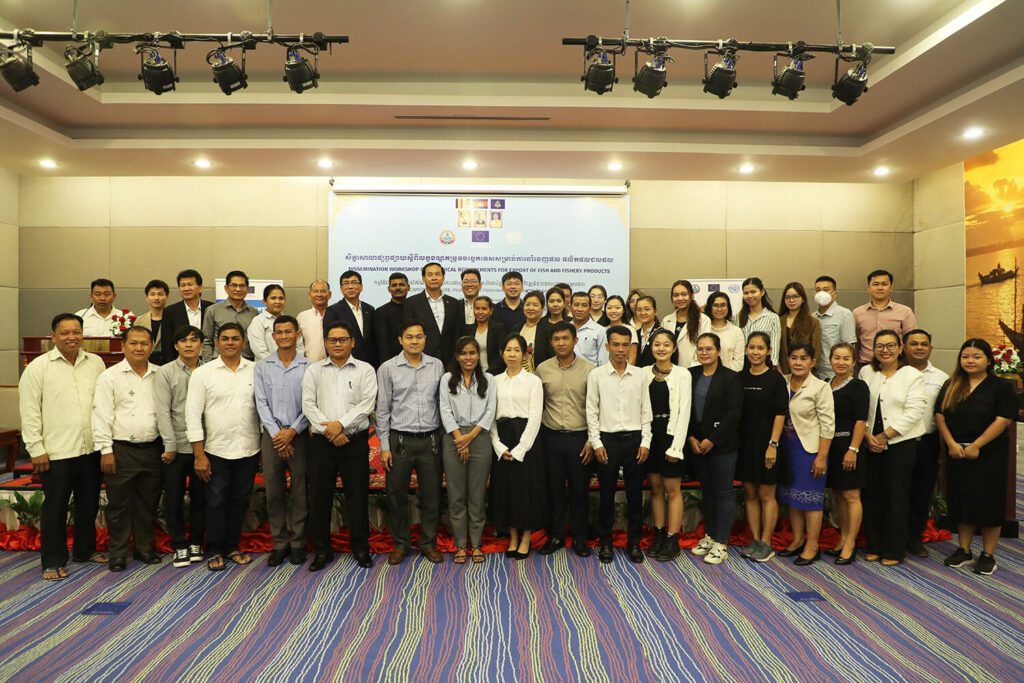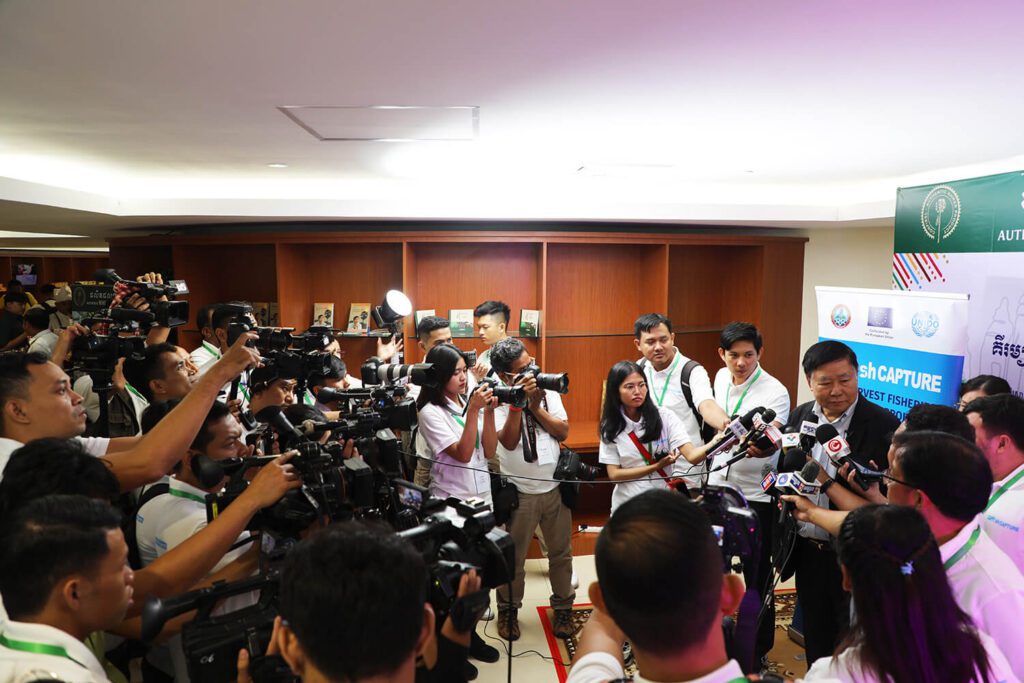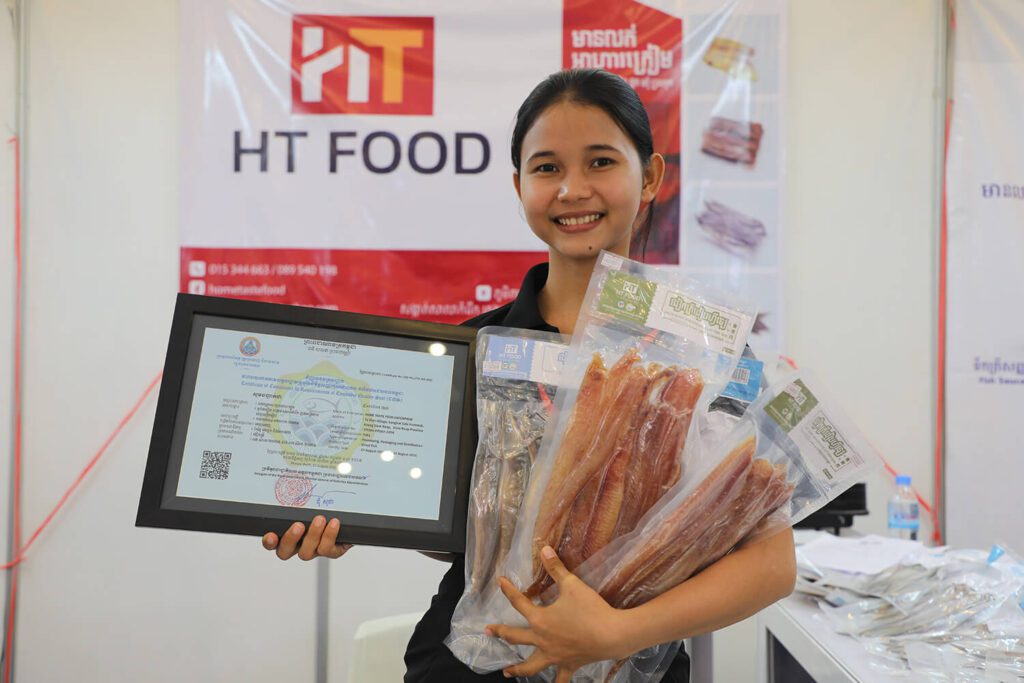27 February 2025 – Gunther Beger, Managing Director of Directorate for SDG Innovation and Economic Transformation, UNIDO, paid a visit to Cambodia in February 2025 to explore the impact of the CAPFISH-Capture: Post-harvest Fisheries Development project and to forge new partnerships for sustainable fisheries development.
The CAPFISH-Capture project, a flagship initiative co-funded by the European Union (EU), has significantly contributed to sustainable growth in Cambodia’s fisheries sector. With a focus on improving food safety compliance, strengthening business competitiveness, and empowering women, the project has gained recognition from beneficiaries, government counterparts, development partners, and academia.
During the mission, Beger, along with H.E.Tina Dith, Minister of Agriculture, Forestry, and Fisheries (MAFF), and Bryan Fornari, Head of Cooperation at the EU Delegation to Cambodia, marked the project’s expansion to support 23 additional fish processing enterprises through its Value Chain Investment Support (VCIS) and Investment Support Facility (ISF) schemes. This achievement brings the total number of enterprises supported by the project to 52, including 35 women-led businesses and three led by people with disabilities—highlighting UNIDO’s commitment to inclusivity and equal opportunity in the economy.
The Minister congratulated the CAPFISH-Capture project on its progress. “The effective implementation of these initiatives will support the sustainable growth of the agriculture and fisheries sectors and bring widespread benefits to the Cambodian people.”
A key highlight of the visit was a tour of the Sophorn Someng Fish Processing Enterprise, a project beneficiary that has thrived with support while actively promoting gender equality. “Witnessing the innovation and progress at this enterprise underscores our mission to strengthen Cambodia’s fisheries sector,” stated Beger. He emphasized the importance of collaboration, noting, “Working together with MAFF and local stakeholders, we can drive positive changes that ensure a prosperous future for Cambodians.”
Someng Dy (wife) and Sophorn Soung (husband), co-owners of the enterprise, expressed their heartfelt appreciation, stating, “We are truly grateful for the support from CAPFISH-Capture, which has empowered us to expand our business and uplift women in our community through meaningful job creation.”
To promote sustainable consumption and highlight local products, UNIDO co-hosted Cambodia’s local fish culinary event, “Healthy Plates, Thriving Communities: Eat Local Fish.” This initiative showcased the diversity of Cambodian fish and fishery products and the importance of sustainable practices, reinforcing UNIDO’s role in nurturing the sector and promoting domestic fish and fishery products.
Ensuring a robust food safety system is vital for local fish processing enterprises to meet international market requirements. Highlighting the social impact of the initiative, Fornari said, “When enterprises comply with food safety standards, including traceability, they can not only grow locally but also expand internationally, creating more jobs, especially for women, and enhancing public health.” Through CAPFISH-Capture, UNIDO has contributed to developing key legal frameworks, including a new chapter on food safety management within Cambodia’s Fisheries Law and an extensive National Residue Monitoring Programme (NRMP).
The project has also introduced the Cambodia Quality Seal (CQS), a voluntary certification scheme that recognizes enterprises committed to high quality and safety standards. Currently, 18 enterprises have achieved this certification, with numbers expected to rise as the scheme gains traction.
To bolster these efforts, CAPFISH-Capture has established CamTrace, Cambodia’s digital traceability system, which empowers authorities to efficiently track and manage the fisheries value chain from farm to export, which has already been adopted by nine fish processing enterprises, further enhancing the project’s impact on food safety and supply chain management.
UNIDO recognizes that research and innovation are crucial for advancing the fisheries sector. The establishment of the Food Technology, Research and Innovation Platform (FTRIP) aims to foster R&D in product development and address challenges within the food industry. Collaborating with local universities, CAPFISH-Capture is helping develop innovative products, from ready-to-eat fish jerky to innovative fish powders.
The CAPFISH-Capture project also established the Cambodia Packaging Center (CPC), which serves as a hub for developing sustainable packaging solutions tailored to the food industry’s needs. This initiative promotes collaboration between academia and the private sector, ensuring that new approaches to packaging are both innovative and environmentally responsible.
During his mission, Beger also participated in high-level meetings with Ministers and representatives from key ministries, Heads of the UN agencies, the EU Delegation team, and the German Ambassador, discussing the project’s success and future prospects. Key priorities included:
- Exploring the prospect of the second phase of CAPFISH-Capture and broader collaboration in agro-industry, fisheries, and innovation hubs.
- Sharing insights on the ISF initiative and the CamTrace, examining opportunities for replication in other agricultural sectors and ways to expedite Cambodia’s eligibility for EU exports.
- Identifying strategies to strengthen Cambodia’s industrial development through mobilizing funding support from international financial institutions and development partners to scale up initiatives.
- Inviting the Royal Government representatives to the UNIDO General Conference in November 2025 to enhance global partnerships for sustainable and inclusive industrial development.
Drawing on UNIDO’s extensive expertise and strong networks in economic and industrial development, Beger reaffirmed UNIDO’s commitment to fostering inclusive and sustainable growth in Cambodia’s fisheries and industrial sectors. Recognizing the challenges and opportunities ahead, he emphasized UNIDO’s readiness to collaborate on transformative projects that promote sustainable practices and create vibrant economic opportunities for local communities, ultimately benefiting everyone.
Published by the United Nations Industrial Development Organization (UNIDO):
https://www.unido.org/news/advancing-cambodias-fisheries-unido-eu-and-government-cambodia-strengthen-capfish-capture-initiative
